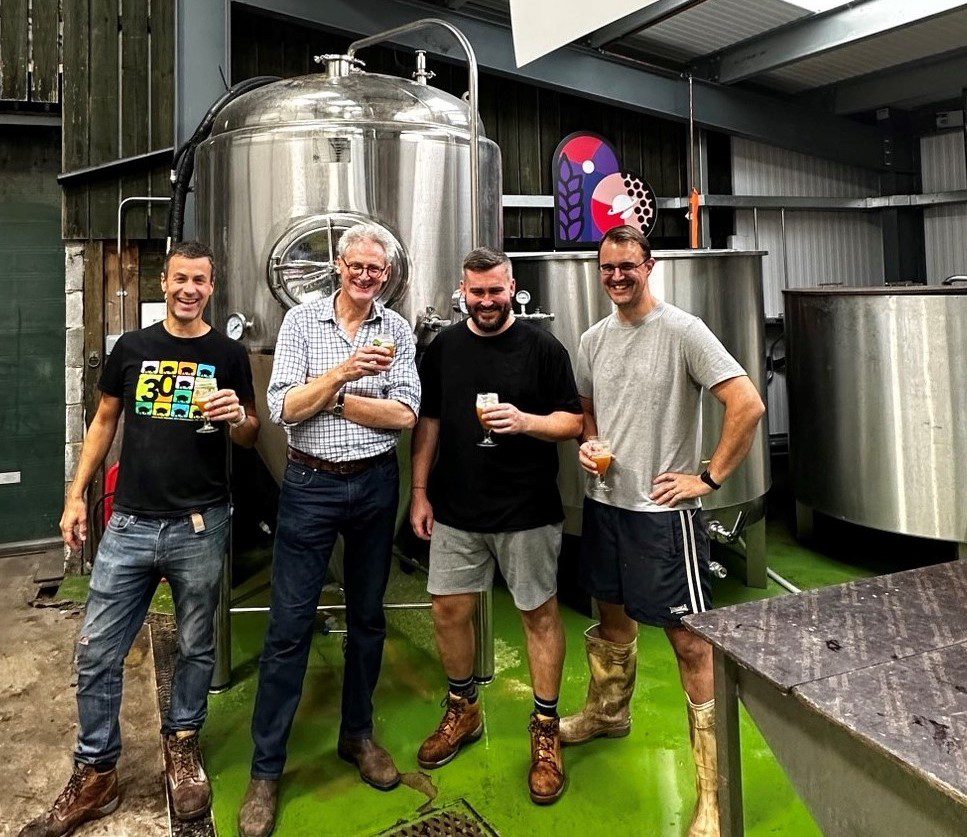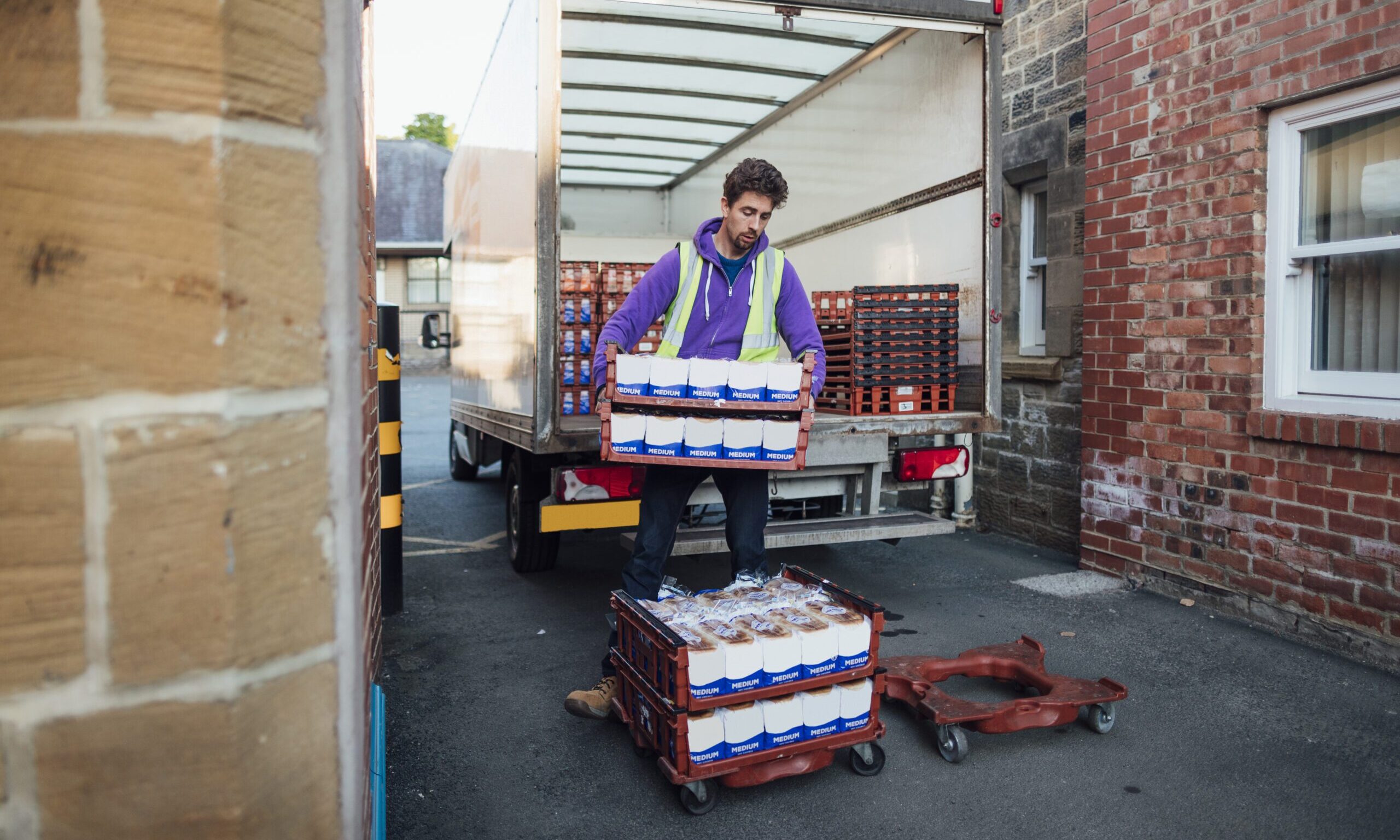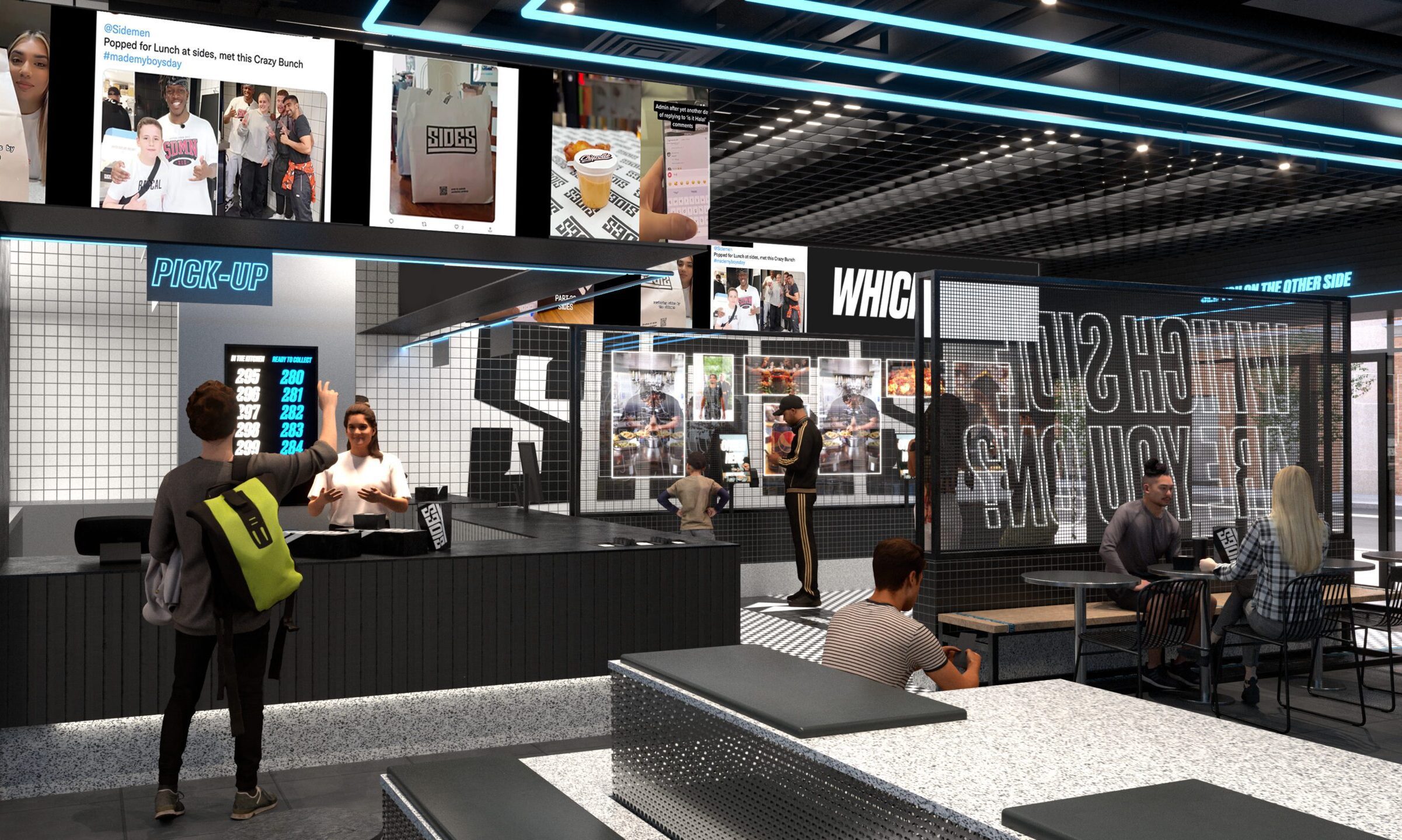Register to get 5 free articles
Reveal the article below by registering for our email newsletter.
Want unlimited access? View Plans
Already have an account? Sign in
What inspired the decision to power the brewery entirely with solar energy?
The inspiration behind One Planet was to brew great beer while making as low an impact as possible on our planet. By harnessing the sun to power the brewing process, we are able to make a huge reduction in our carbon emissions.
Can you share any insights into the cost-effectiveness of transitioning to solar power for brewing compared to traditional energy sources?
It’s not really about short-term cost-effectiveness, more about doing what’s right for the planet. The savings will be long term, as the initial investment in solar panels is significant for a small brewery. But we do believe it will give us a payback in about eight years.
Are there any specific environmental certifications or standards that you aim to meet or exceed as a 100% solar-powered brewery?
We are aiming to reach carbon net zero by the end of 2024 but the calculation of the exact carbon impact is difficult, as many companies have found – and we are not in control of the whole route to the end consumer.
Can you elaborate on the specific solar panels and technology you are using for generating electricity on-site? How much electricity do you anticipate generating annually?
We have installed 120 Trina Vertex Panels, giving a 49.8KW array, on the brewery roof. By way of comparison, a domestic property array would typically generate 3-5 KW, so our capacity is about 10 times the average house. Clearly, the amount of electricity we’ll generate over a year will depend on how much sunshine we receive. Our best estimate is that we’ll generate enough for four or five brews per month, on average.
Were there any unique challenges or considerations?
The biggest challenge was the three month delay in getting a standard consent document from our Distribution Network Operator, SSE, which was a deeply frustrating and completely unnecessary delay. This meant we lost most of the peak summer sun. We got no grant aid or financial help from the local or central government, which was also disappointing.
Can you describe the environmental benefits of brewing with solar power, such as reductions in carbon emissions or energy costs?
Solar power generates electricity without burning fossil fuels, which cause carbon emissions, making it a far cleaner, more planet-friendly way of powering the brewery.
How do you plan to ensure the quality and freshness of your beers when using home-grown hops, and what led to the decision to source ingredients locally?
We planted our original hop garden in 2014, just over the road from the brewery, and relocated it in 2019 to a larger site that’s even closer. So the hops couldn’t be any more local – they travel about 200 yards from the field to the brewery. At harvest, we pick the hops, bring them to the brewery, dry them and vacuum pack them, then cold store them at 6°C in a specially built store. It means we’re capturing the hops at their freshest, and we think that shows in the quality of our beers. We are using Cascade hops from our hop garden in our first beer from One Planet Brewing, Hazy IPA, alongside hops from elsewhere, and we’re testing new hop varieties in the hop garden, with the aim of becoming self-sufficient in hops in the future.
Can you explain the reasoning behind your choice of packaging, including reusable kegs and aluminium cans with the lowest carbon footprint?
Given that the ethos behind One Planet Brewing is about sustainability, we obviously wanted to sell the beers in reusable packaging. So we’re using reusable glass flagons, mini kegs and aluminium cans – obviously the latter can’t be reused, but they have a lower carbon footprint than other ‘one way’ packs such as glass bottles or PETs.
What are your criteria for selecting partner pubs and retail outlets for distributing your beers in a sustainable way? Are there any specific guidelines you follow?
We will be looking to work with like-minded partners who share our sustainability ambitions. We will only supply reusable packaging and recyclable cans. We are limiting deliveries to within a 30-mile radius of the brewery and we are planning to purchase an electric dray as soon as we can. This can cope with local deliveries most carbon-efficiently.
You mentioned your mission to “only take out what we put in.” How do you plan to limit your environmental impact and carbon footprint in the brewing process beyond solar power?
The ‘only take out what we put in’ mission applies to our solar power. We will only brew if we have generated enough solar energy to power that brew. The brewery is fitted with technology that measures this – so we can see in real time how much solar power we’ve generated and how much we’re using. Our other measures to limit our impact on the planet include using sustainable packaging, and local ingredients including our hops, which dramatically reduce our food miles.
How does the limited brewing capacity based on solar energy generation impact your production schedule and availability of beer in the market?
We have a completely different mindset for One Planet Brewing. Most breweries are limited by the size of the brewery and how many brewing vessels you can fit in them. With One Planet, the constraint is the amount of solar energy we can generate. We accept that our brewing runs will therefore be limited, and our beers will never be widely available – but we expect strong demand for them locally: consumers are increasingly conscious of their environmental impact and interested in doing the right thing for our planet.
Are there any lessons learned or best practices you’d like to share with other breweries interested in transitioning to solar power for their energy needs?
It’s a major project and requires a lot of investment – money and time. It’s also worth bearing in mind that the renewables industry including solar is still at a fairly early stage compared to conventional industries, so suppliers are more specialist, and there can be lengthy waits for equipment.
What advice would you give to individuals and businesses looking to make more sustainable choices, especially in the context of renewable energy adoption like solar power?
Like all big decisions, there’s never a right time to invest in solar power and to an extent it has to be something of a leap of faith. However, if you believe that we have to take action now to protect our planet, then it’s really the only decision you can make, and better to make it now.
One very practical action is that whenever you have to make a new investment decision or replace a plant, look at the low carbon alternatives. Even if the payback is not quite as good as traditional equipment, changes in government policy and consumer attitudes may mean it becomes the wisest choice. And of course, there is only One Planet – we all have a responsibility and reason for protecting it.



















